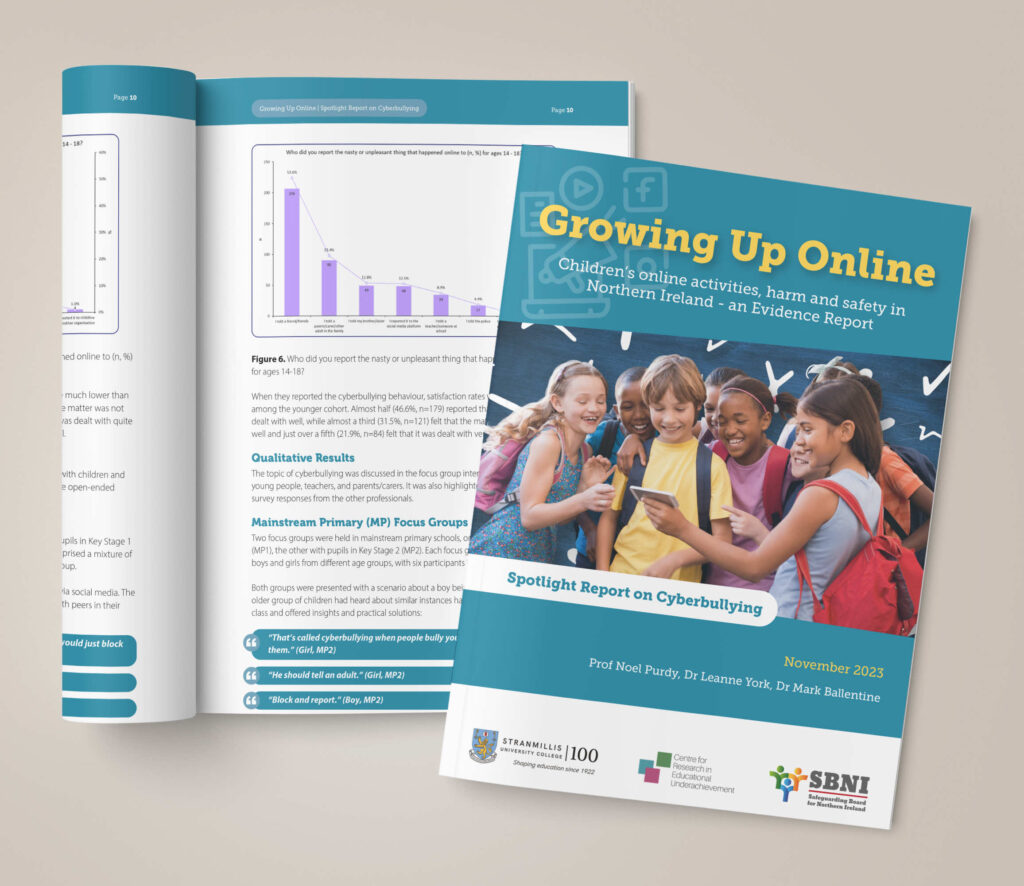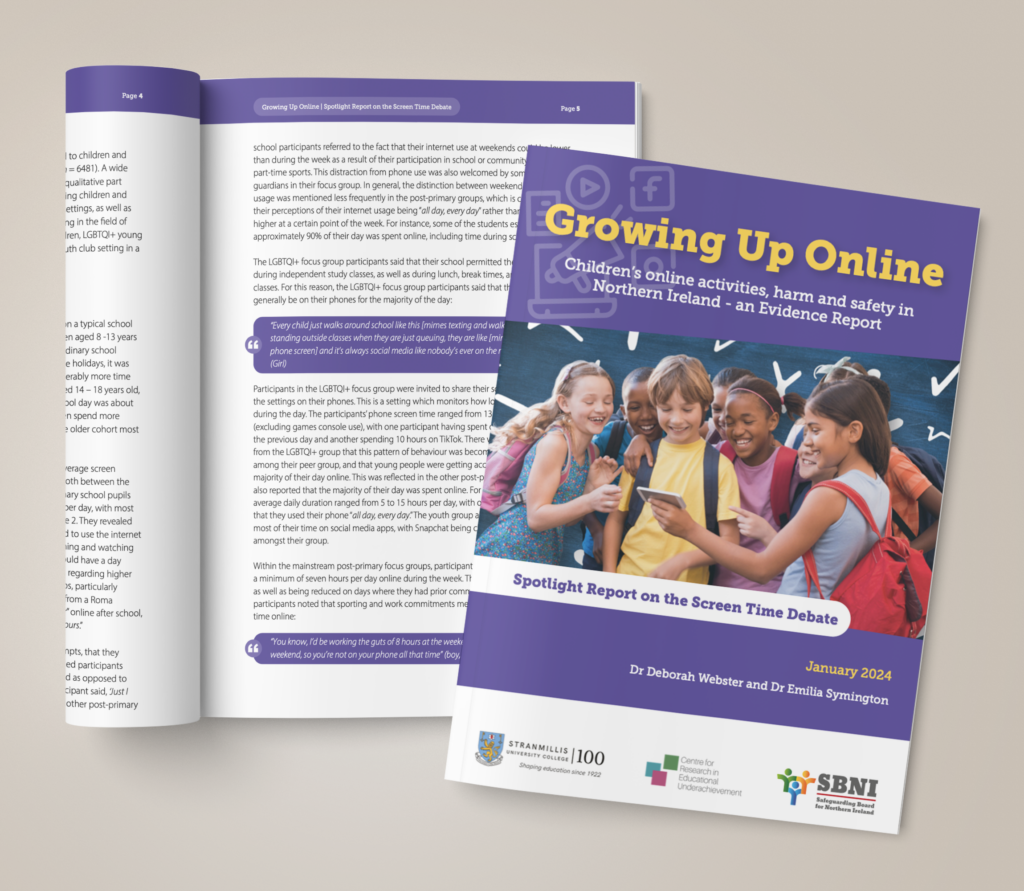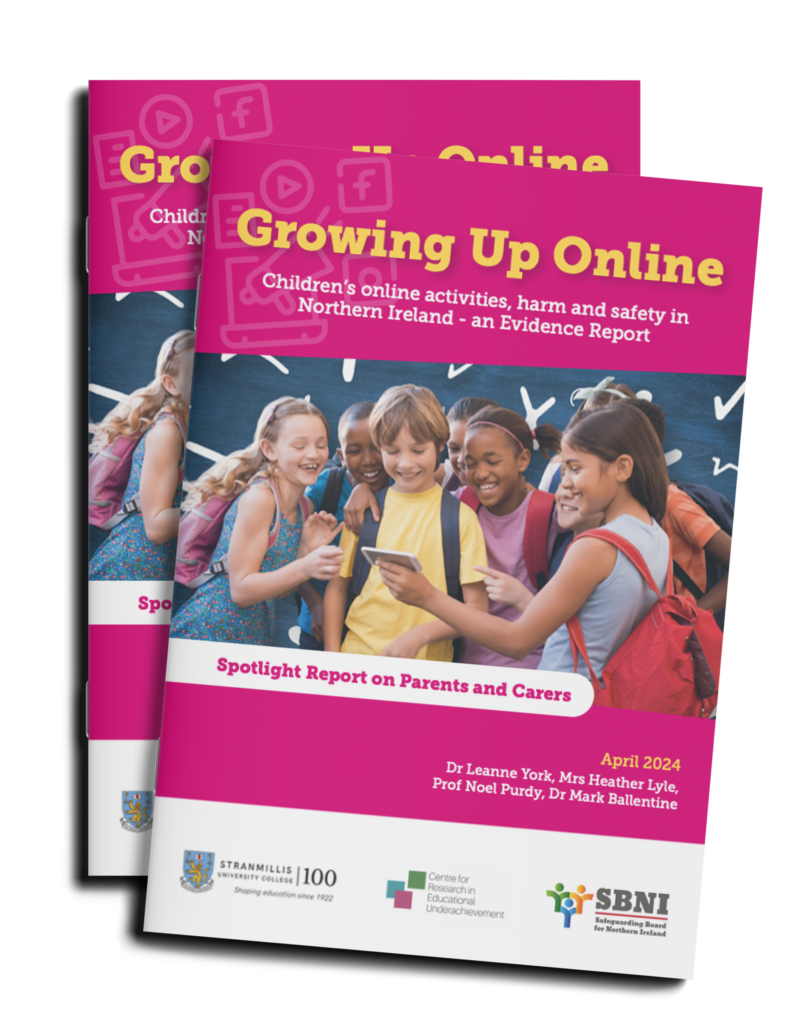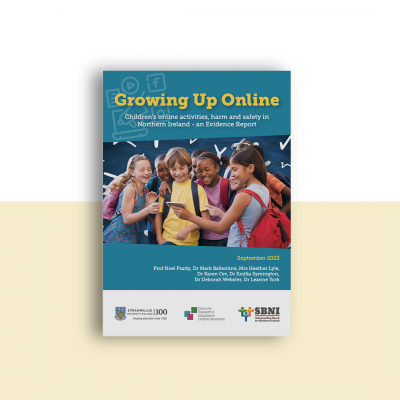Abstract
This mixed-methods research study was funded by the Safeguarding Board for Northern Ireland (SBNI) and conducted by a team from the Centre for Research in Educational Underachievement at Stranmillis University College, Belfast.
The report was commissioned to inform the delivery of actions associated with the Northern Ireland Executive’s five-year Keeping Children and Young People Safe: An Online Safety Strategy – which is in year two of implementation.
This report, draws together research from a survey of 6,481 children and young people aged 8-18, and focus groups and interviews with 95 participants including children and young people in mainstream primary and post-primary schools, special schools and youth club settings, as well as parents/carers, teachers/school leaders, and professionals working in the field of online safety.
The qualitative engagement included Traveller/Roma children, LGBTQI+ young people, children with (severe) learning difficulties, young people in a youth club setting in a disadvantaged urban context, and pupils from an Irish-medium school. The study was supported by two children and young people’s advisory groups, and an expert advisory group.
Summary of findings
The study found that:
- Children and young people report a wide range of positive online experience and that being online is not a bolt-on to their lives; it is absolutely integral to how they live almost every aspect of their lives today.
- There is clear evidence that around 1 in 5 children and young people (20% of 8-13 year olds and 18% of 14-18 year olds) have experienced something nasty or unpleasant happening to them online over the past couple of months, most commonly on social media apps.
- Girls are much more likely to experience something nasty or unpleasant online, both among the younger cohort (23% girls vs 17% boys) and the older cohort (20% girls vs 15% boys).
- Children and young people are spending many hours online each day, on school days but especially at weekends and during holidays. While most internet use is within reasonable limits (2-4 hours per school day), there is evidence that many children and young people are spending much greater amounts of time online (frequently more than 7 hours per day).
- There is a disparity between children and young people’s perceptions of their parents’ (often low) level of interest in what they were doing online, and the genuine fears and concerns expressed by the primary and post-primary parents who volunteered for the focus groups. For instance, only 17% of 8-13 year olds and just 8% of 14-18 year olds reported that their parents were ‘very interested’ in what they were doing online, while 20% of 8-13 year olds and 34% of 14-18 year olds felt that their parents were ‘not at all interested’ in their online activities.
- There is a strong need to provide relevant, up-to-date, age-appropriate, supportive and engaging training and resources (in English and Irish) for children and young people, but also for parents and teachers/educators.
- There is a need for greater regulation of social media companies by government to help ensure: closer monitoring of online material that is potentially offensive or harmful to children and young people; more transparent, consistent and child-friendly online reporting mechanisms; the timely removal of offensive material; and stricter enforcement of age restrictions on certain apps or sites, where currently it is much too easy for children to enter a false date of birth.
Citation: Purdy, N., Ballentine, M., Lyle, H., Orr, K., Symington, E., Webster, D., York, L., (2023) Growing Up Online: Children’s online activities, harm and safety in Northern Ireland – an Evidence Report. Belfast: Centre for Research in Educational Underachievement (CREU), Stranmillis University College / Safeguarding Board for Northern Ireland (SBNI)
Read Executive Summary
Read Full Report

Growing Up Online
Children's online activities, harm and safety in Northern Ireland - an Evidence Report

Growing Up Online
Spotlight Report on the Screen Time Debate

Growing Up Online
Spotlight Report on Parents and Carers
© SBNI 2023

